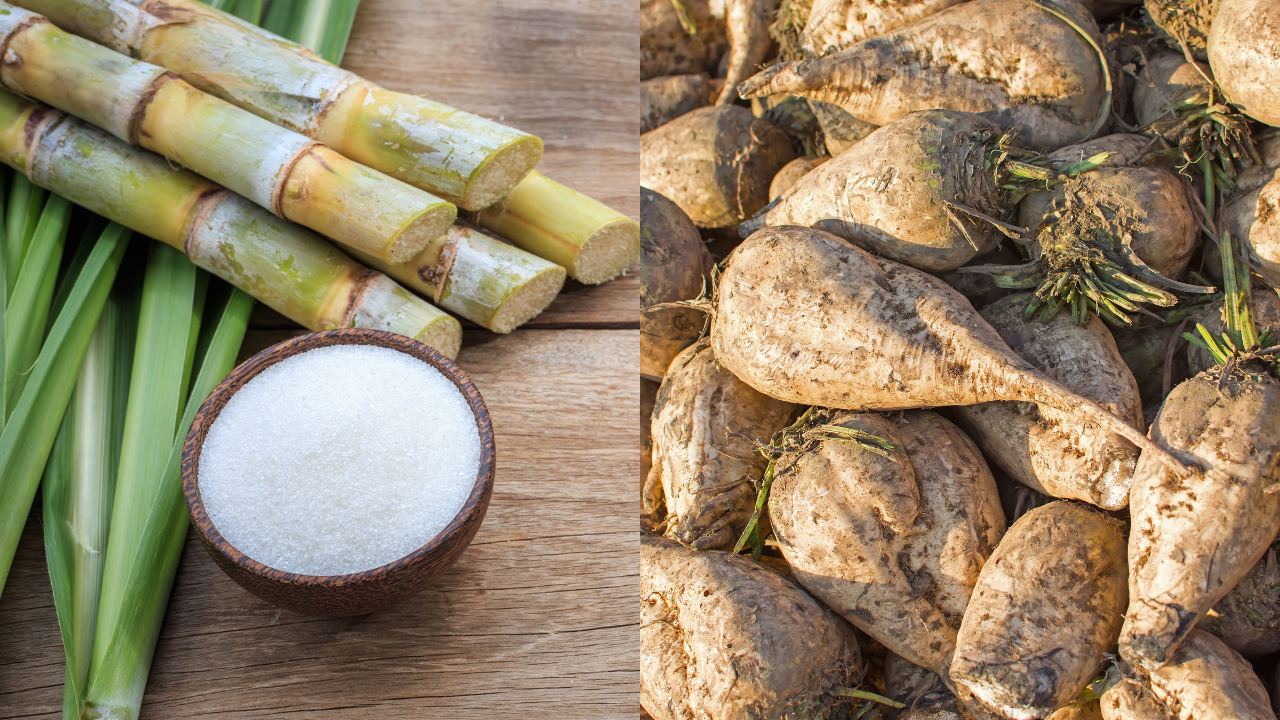The choice between beet sugar vs cane sugar can influence the sweetness level of certain dishes.
The choice between beet sugar vs cane sugar can influence the sweetness level of certain dishes.
Blog Article
Exploring the Distinctions in Usages and Benefits Between Beet Sugar Vs Cane Sugar
In the cooking world, the selection in between beet sugar and cane sugar is not merely concerning sweet taste yet involves a nuanced consideration of flavor, application, and effect. While both sugars stem from various plants, each undergoes distinct manufacturing procedures that subtly affect their characteristics and suitability for various dishes.
Beginnings and Production Procedures of Beet and Cane Sugar

Walking cane sugar, on the various other hand, comes from the sugarcane plant, an exotic turf indigenous to Southeast Asia however currently cultivated in tropical zones worldwide - beet sugar vs cane sugar. The manufacturing of cane sugar begins with the harvesting of cane stalks, which are crushed to launch the juice.

Nutritional Content and Wellness Considerations

When comparing the nutritional material of beet sugar and cane sugar, it comes to be apparent that both kinds basically provide the exact same caloric values, with about 16 calories per teaspoon and no substantial nutrient diversity. Each is composed practically entirely of sucrose, which is a straightforward carb that offers quick power yet lacks vitamins, minerals, or fiber. This resemblance encompasses their effect on health, especially concerning blood sugar level degrees. Both sugars, when eaten over, can add to raised blood sugar levels, a risk factor for diabetes and various other metabolic conditions. Additionally, extreme intake can result in weight gain and dental troubles, as both sugars are similarly cariogenic, promoting dental caries. From a health and wellness viewpoint, regulating intake of any kind of sugar, whether from beet or cane, is suggested to stay clear of these potential negative effects on health. Thus, neither holds a distinctive advantage over the other in terms of wellness benefits.
Flavor Profiles and Culinary Applications
Regardless of their comparable chemical frameworks, beet sugar and cane sugar differ discreetly in taste, which can influence their usage in numerous cooking contexts. Cane sugar frequently lugs a tip of molasses, even in its refined check over here form, offering a warm, caramel-like undertone that boosts baked products, coffee, and chocolate-based recipes. This slight molasses flavor is particularly valued in the baking industry for adding depth to sugary foods and pastries. On the various other hand, beet sugar is characterized by its extremely improved, neutral taste, making it a flexible sugar that does not change the taste profiles of meals. This neutrality is particularly useful in delicate recipes, such as light breads, creams, and some sauces, where the integral flavors of other active ingredients are planned to stand apart. As a result, chefs and food producers could select one sort of sugar over the various other based on the preferred taste outcome of their culinary creations.
Environmental Influence and Sustainability
While both beet and cane sugars are derived from plants, their ecological effects vary substantially due to Continued the unique methods of farming and processing required for each and every. Sugar beet cultivation frequently entails considerable automation, which can increase fossil gas consumption and carbon exhausts. Beetroots can be grown in cooler environments and need much less irrigation, potentially minimizing water use contrasted to sugarcane. Sugarcane, on the other hand, is normally expanded in exotic areas where it counts greatly on watering and a much longer growing duration, raising its water impact.
Moreover, the handling of sugarcane typically creates a considerable quantity of waste, including bagasse, which, although useful as biofuel, regularly adds to air pollution if melted inefficiently. Sugar beet handling utilizes even more of the raw materials, resulting in much less waste. Both industries face difficulties in reducing their environmental footprints, but recurring technologies in farming practices and waste administration are aiming to boost sustainability.
Economic Factors Influencing the Sugar Market
The financial characteristics of the sugar sector are considerably affected by international market needs and profession policies. Factors such as tolls, aids, and international profession agreements play vital functions in shaping the affordable landscape. For instance, in regions where sugarcane or sugar beet production is subsidized, producers might have a monetary benefit that enables them to provide reduced rates on the worldwide market. This can produce variations in success and market gain access to for producers in nations without such subsidies.
In addition, variations in worldwide demand for sugar, affected by nutritional patterns and industrial usage in food, straight impact costs and manufacturing degrees. beet sugar vs cane sugar. Weather additionally play a critical duty, as they can significantly affect plant yields and, consequently, the supply chain. This irregularity presents a degree of economic unpredictability that can bring about investment volatility in sugar production industries, influencing choices from planting to market method
Verdict
To conclude, both beet and look at this now cane sugar have one-of-a-kind high qualities that fit different culinary needs. While cane sugar imparts an abundant taste perfect for improving baked items, beet sugar's nonpartisanship is best for lighter dishes. Nutritional similarities regardless of, their unique manufacturing processes and ecological impacts include intricacy to the choice in between them. Therefore, recognizing these distinctions helps cooks and consumers make notified choices that line up with their health and wellness, culinary, and honest preferences.
Report this page